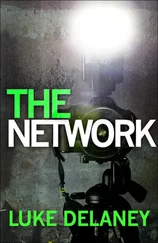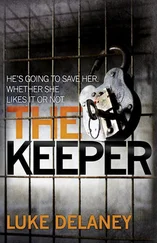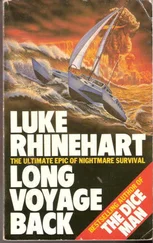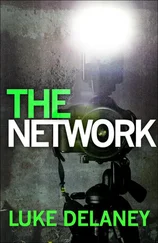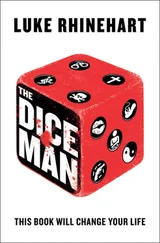Luke Rheinhart - The Diceman
Здесь есть возможность читать онлайн «Luke Rheinhart - The Diceman» весь текст электронной книги совершенно бесплатно (целиком полную версию без сокращений). В некоторых случаях можно слушать аудио, скачать через торрент в формате fb2 и присутствует краткое содержание. Жанр: Современная проза, на английском языке. Описание произведения, (предисловие) а так же отзывы посетителей доступны на портале библиотеки ЛибКат.
- Название:The Diceman
- Автор:
- Жанр:
- Год:неизвестен
- ISBN:нет данных
- Рейтинг книги:3 / 5. Голосов: 1
-
Избранное:Добавить в избранное
- Отзывы:
-
Ваша оценка:
- 60
- 1
- 2
- 3
- 4
- 5
The Diceman: краткое содержание, описание и аннотация
Предлагаем к чтению аннотацию, описание, краткое содержание или предисловие (зависит от того, что написал сам автор книги «The Diceman»). Если вы не нашли необходимую информацию о книге — напишите в комментариях, мы постараемся отыскать её.
The Diceman — читать онлайн бесплатно полную книгу (весь текст) целиком
Ниже представлен текст книги, разбитый по страницам. Система сохранения места последней прочитанной страницы, позволяет с удобством читать онлайн бесплатно книгу «The Diceman», без необходимости каждый раз заново искать на чём Вы остановились. Поставьте закладку, и сможете в любой момент перейти на страницу, на которой закончили чтение.
Интервал:
Закладка:
On January 1, 1971, I. had my third annual Fate Day to determined my long-range role for the year. The Die was given the options that (1) sometime that year I marry Linda Reichman, Terry Tracy, Miss Reingold, or a woman chosen at random (I felt that if I couldn't make a go of a dice-marriage with someone, then the nuclear family might be in danger); (2) I give up the dice for the year and begin an entirely new career of some sort (this no longer frightening option was inspired by Fuigi Arishi's article I had read that day on `The Withering Away of the Die'); (3) I begin revolutionary activity against the established clods of the world, my purpose being to expose hypocrisy and injustice, shame the unjust, awaken and arouse the oppressed and, in general, to wage an unending war against crime: namely, to smash society as radically as I am trying to smash society in me' (I'd read a month or two before that Eric Cannon and Arturo Jones had formed an underground revolutionary group and the memory that day made me feel heroic: I wasn't sure what my words meant that I do; but the ring of them made me sit proud on the living room rug where I was preparing to cast the dice); (4) I work during the year on books and articles and novels and stories about whatever the Die dictated, completing at least the equivalent of two books (I resented the bum job of publicity work that was being done for our Dice Centers and the DICELIFE Foundation and vaguely pictured myself coming to the rescue); (5) I continue my multiple activities in promoting diceliving throughout the world, the nature of my contribution to be determined by the Die (it's what I most felt like doing: Linda and Jake and Fred and Lil were all sporadically part of our diceteam, and the dicelife without other dicepeople is often lonely); and (6) I spend the whole year limiting my options to the duration of one day only, so that, indeed (to quote the inspired rhetoric of my '71 Fate Day), 'each day's dawning bring a new birth, while others ignore it and grow old.'
(This last option fascinated me since I always find long-range options something of a drag: they tend to make me too patterned, even if it is the pattern of the Die.) But the Die, testing me, tumbled down a 'four' : that 'I work during the year on various writing projects.'
Two subsequent dice decisions soon determined that I was to complete sometime during the year 'an autobiography of exactly 200,000 words' (so I've had this stupid thing barging in on my days most of the year) and that I worked on other Die-selected work when appropriate (namely when the Die and I felt like it).
Of course writing is hardly a full-time job and I continued randomly seeing my friends, working sporadically with Dice Centers and dicegroups, occasionally lecturing, whimsically playing, occasional new roles, occasionally practicing my dice exercises, and generally leading a very enjoyable, repetitious, consistently inconsistent random sporadic unpredictable dicelife.
Then, naturally, Chance intervened.
Chapter Ninety-two
RELIGION FOR OUR TIME presents [The camera pans from one figure to the next of the five people seated on the slightly raised stage in front of the fifty or so people in the audience.] Father John Wolfe, assistant professor of theology at Fordham University; Rabbi Eli Fishman', chairman of the Ecumenical Center for a More United Society; Dr. Eliot Dart, professor of psychology at Princeton University and noted atheist; and Dr. Lucius M. Rhinehart, psychiatrist and controversial founder of the Religion of the Die.
`Welcome to another live, free, open, spontaneous and completely unrehearsed discussion in our series about Religion for Our Time. Our Subject today IS THE RELIGION OF THE DIE A COP-OUT? [Image of Mrs. Wippleton.] `Our moderator for today's program: Mrs. Sloan Wippleton, former screen and television actress, wife of noted financier and socialite Gregg Wippleton and mother of four lovely children. Mrs. Wippleton is also chairman of the First Presbyterian Church's Committee for Religious Tolerance. Mrs. Wippleton.'
She bursts into a smile and speaks with enthusiasm.
`Thank you. Good afternoon, ladies and gentlemen. We are fortunate today to have a very interesting subject for discussion and one I'm sure you've all wanted to learn more about: the Religion of the Die. We also have a very distinguished panel to discuss it. Dr. Rhinehart [image shifts briefly to Dr. Rhinehart, who, dressed totally in black with a heavy black turtleneck sweater and suit, looks vaguely ministerial. He chews on but does not smoke a large pipe throughout] is one of the most controversial figures of the last year. His papers and books on dice theory and therapy have scandalized the psychiatric world, and his readings from The Book of the Die have scandalized the religious world. He has earned from the American Association of Practicing Psychiatrists a Special Condemnation. Nevertheless, many individuals have rallied round Dr. Rhinehart and his religion, some of them not in mental hospitals. Last year Dr. Rhinehart and his followers began opening Dice Centers called Centers for Experiments in Totally Random Environments and thousands of people have gone through these centers, some reporting deeply religious experiences, but others suffering severe breakdowns. No matter how opinions differ, all agree that Dr. Rhinehart is a very controversial man.
`Dr. Rhinehart, I'd like to open our discussion by asking you our central question for today, and then asking each of our other guests to comment on the same thing: "Is your religion of the Die a Cop-out?"
`Sure,' says Dr. Rhinehart, chewing contentedly on his pipe, then he remains silent. Mrs. W. looks first expectant and then nervous.
`How is it a cop-out?'
`In three ways.'
Again R. chews wordlessly on his pipe, serene and satisfied.
`In what three ways?'
R. lowers his head and the camera pans down to see him rubbing something between his hands and then drop onto the small table in front of him a die; it is a six. When the camera pans back up to his face the viewer sees R. looking directly out 'from the screen. With a benevolent glow, he holds his pipe steady and smokeless, looking at the viewer. Five seconds, ten seconds pass. Fifteen.
`Dr. Rhinehart?' says a feminine voice off-screen. Image shifts to a serious Mrs. W. Then back to R. Then to Mrs. W., frowning, then to R., exhaling smokeless air from an open mouth. Then, uncertainly, appears the image of Father Wolfe, who looks as if he's concentrating on what he's going to say.
`Rabbi Fishman. Perhaps you'd like to lead off today,' says the off-screen feminine voice.
Rabbi Fishman, short, dark and fortyish, directs his words intently first toward Mrs. W. and then to R.
`Thank you, Mrs. Wippleton. I find everything Dr. Rhinehart has said this afternoon extremely interesting, but he seems to be missing the chief point: the religion of the Die is a resignation from the status of man: it is a worship of chance, and as such, a worship of that which has always been man's adversary. Man is above all else the great organizer, the great integrator, while a dicelife as I understand it, is a destroyer of integration and unity. It is a cop-out from human life, but not into the life of random nature as some of Dr. Rhinehart's critics have maintained. No. Nature, too, is an organizer and an integrator. But the religion of the Die represents in a way the worship of disintegration, dissolution and death. It is anti- I find it another sign of the sickness of our times.'
[Camera pans smoothly back to Mrs. W.] `That's very interesting, Rabbi Fishman. You've certainly given us much food for thought. Dr. Rhinehart, would you like to comment?'
'Sure.'
R. stares again serenely out at the television audience, benignly chewing on his pipe. Five seconds, ten, twelve.
Читать дальшеИнтервал:
Закладка:
Похожие книги на «The Diceman»
Представляем Вашему вниманию похожие книги на «The Diceman» списком для выбора. Мы отобрали схожую по названию и смыслу литературу в надежде предоставить читателям больше вариантов отыскать новые, интересные, ещё непрочитанные произведения.
Обсуждение, отзывы о книге «The Diceman» и просто собственные мнения читателей. Оставьте ваши комментарии, напишите, что Вы думаете о произведении, его смысле или главных героях. Укажите что конкретно понравилось, а что нет, и почему Вы так считаете.



